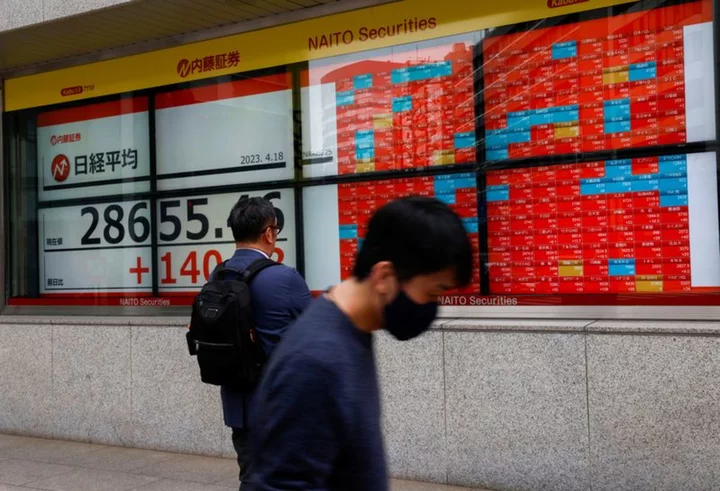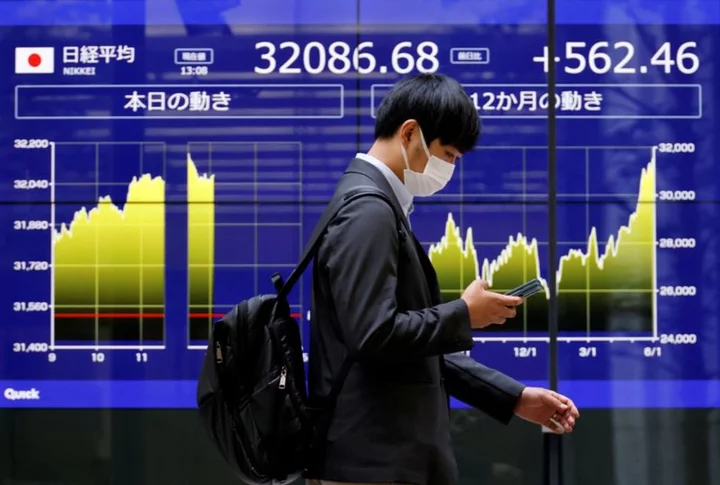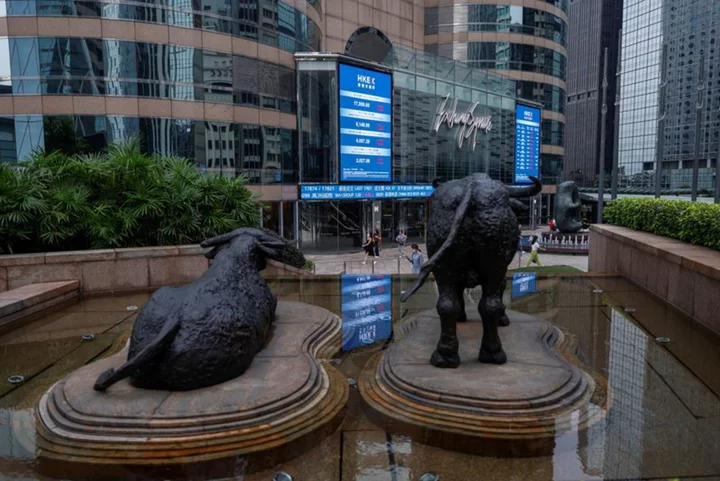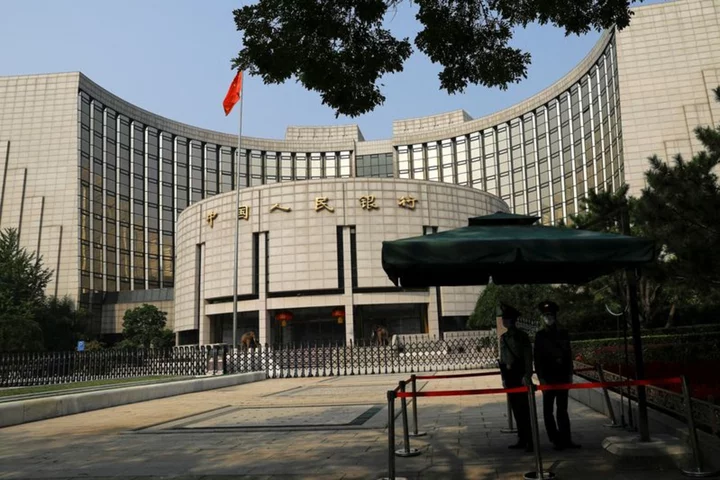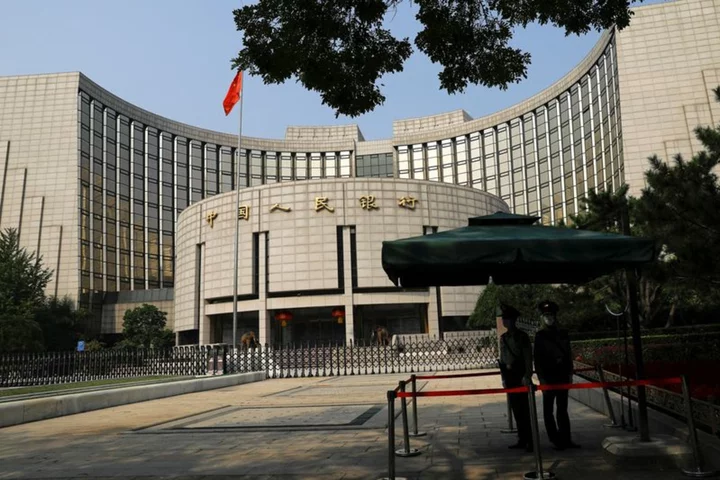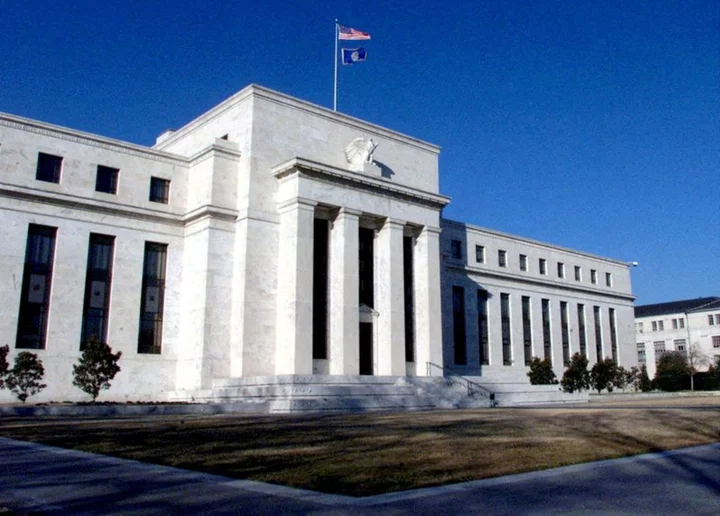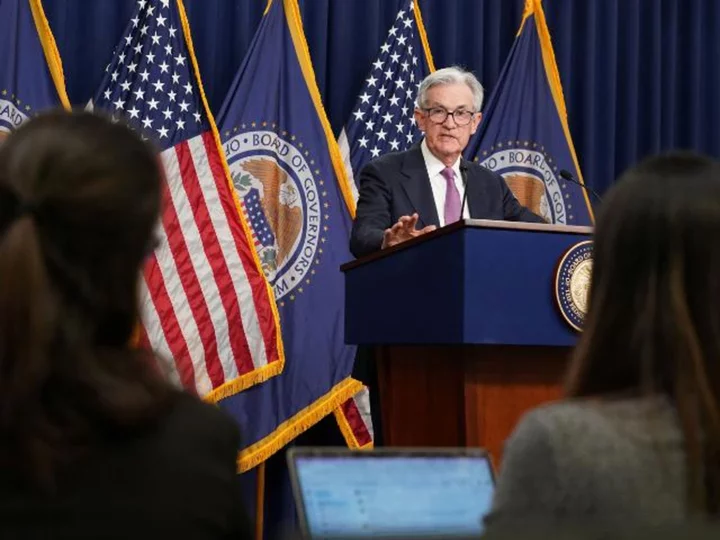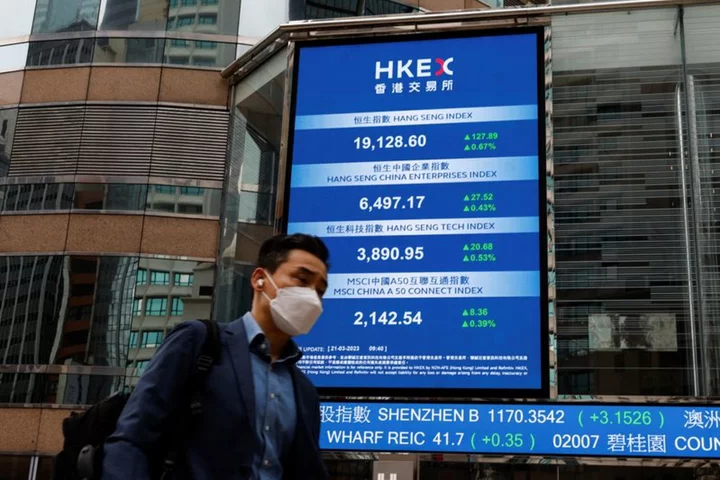By Xie Yu
HONG KONG Asian stocks followed Wall Street's lead on Thursday, dipping across the board as investors interpreted the U.S. Federal Reserve's latest policy statements as signalling higher-for-longer interest rates.
MSCI's broadest index of Asia-Pacific shares outside Japan was down 0.4% by early afternoon Hong Kong time. Japan's Nikkei slid 0.6%. China's blue-chip dipped 0.6%, while Hong Kong's benchmark shed 1.3%.
The yield on two-year U.S. Treasury notes rose to a 17-year high of 5.1970% on Thursday morning and hovered around the 5.18% level by early afternoon.
Japan's 10-year government bond yield rose to its highest in a decade, tracking U.S. 10-year Treasury yields which rose to 4.4310%, a 16-year peak.
"We expect bond yields to see further upside in the very near term given the Fed’s hawkish position," said Tai Hui, APAC chief market strategist, J.P. Morgan Asset Management.
"However, high interest rates will eventually cool the economy, leading to falling yields," he said, adding that they remain constructive on not only long-tenor government bonds or investment grade corporate debt, but also assets like growth and tech stocks.
Ben Luk, senior multi-asset strategist at State Street Global Markets said the overall tone of the Fed's latest meeting was not overly hawkish but there were two surprises.
Forecasts for 2024 were slightly higher than generally expected and Fed statements implied the view that macroeconomic growth would hold up even if with rates staying higher for longer, Luk said.
The U.S. central bank held interest rates on Wednesday and projected an increase by year-end, saying monetary policy is likely to be significantly tighter through 2024 than previously thought.
The median forecast for the federal funds rate is 5.1% by year-end, versus 4.6% estimated in June.
Even as inflation slows for the rest of 2023 and in coming years, the Fed anticipates only modest initial reductions to its policy rate.
Upward revisions to U.S. policymakers' median rate forecasts for the next couple of years triggered a rebound in the U.S. dollar, pushed U.S. Treasury yields to multi-year highs, flattened the yield curve and sent stocks tumbling.
The dollar index, which measures the currency against a basket of rivals, rose as high as 105.59 on Thursday, its strongest since March 9, pushing the yen close to its weakest since November.
Sterling, meanwhile, sank to fresh multi-month lows in the wake of an inflation report that surprised to the downside on Wednesday, as questions ramp up about whether the Bank of England may follow its U.S. peer in holding rates on Thursday.
Major stock futures wavered in early afternoon Asia time. U.S. stock futures, the S&P 500 e-minis, were down 0.3%. The pan-region Euro Stoxx 50 futures, German DAX futures and FTSE futures all fell by roughly 1%.
Investors are now also awaiting monetary policy decisions on Thursday from Indonesia, the Philippines and Taiwan, while a finely balanced call from the Bank of England will also give steer to Asian markets.
Oil prices fell in Asian trade on Thursday, after posting the largest fall in a month in the previous session. U.S. crude dipped 0.72% to $89.01 a barrel. Brent crude fell to $92.87 per barrel.
Gold was slightly lower, with spot gold trading at $1,927.96 an ounce.
(Reporting by Xie Yu in Hong Kong; Editing by Lincoln Feast.)

